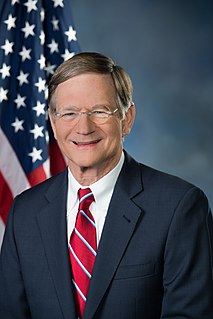A Quote by Edmund Phelps
Everybody feels better about himself, his community, and his country if employers are paying workers well. Economics, though, teaches that if every employer is pressured to raise wages, some labor will be priced out of the market.
Related Quotes
In a community of human beings working together, the well-being of the community will be the greater, the less the individual claims for himself the proceeds of the work he has himself done; i.e., the more of these proceeds he makes over to his fellow workers, and the more his own requirements are satisfied, not out of his own work done, but out of work done by the others.
Basic US economics tells us that back-of-the-house workers are very unlikely to get more pay overall. The fact that workers are in those jobs means employers are already paying them what they need to pay them to get them in the current environment. If employers do share some tips with them, it will likely be offset by a reduction in their base pay.
In my Inaugural I laid down the simple proposition that nobody is going to starve in this country. It seems to me to be equally plain that no business which depends for existence on paying less than living wages to its workers has any right to continue in this country. By "business" I mean the whole of commerce as well as the whole of industry; by workers I mean all workers, the white collar class as well as the men in overalls; and by living wages I mean more than a bare subsistence level - I mean the wages of decent living.
Apparently, union bosses are so distraught about declining enrollments they will stoop to exploiting illegal workers. There is no doubt that this would hurt American workers, who would suddenly face a flooded job market full of cheap foreign labor. It would depress the wages of the American workers and cost them jobs.
We should strengthen our immigration laws to prevent the importation of foreign wages and working conditions. We should make it illegal for employers to lay off Americans and then fill their jobs by bringing in workers from overseas. Any U.S. employer who wishes to hire from abroad - even for temporary jobs - should have to recruit U.S. workers first. And we should end the unskilled immigration that competes with young Americans just entering the job market.
The market economy is the social system of the division of labor under private ownership of the means of production. Everybody acts on his own behalf; but everybodys actions aim at the satisfaction of other peoples needs as well as at the satisfaction of his own. Everybody in acting serves his fellow citizens.
Free migration within Europe means that countries that have done a better job at reducing unemployment will predictably end up with more than their fair share of refugees. Workers in these countries bear the cost in depressed wages and higher unemployment, while employers benefit from cheaper labor.
If a market exists for low-paid work, then we should think about how we can make this type of work more attractive by providing government assistance. Of course, the wage-earner must be able to live off of his wages. We will not allow poverty wages or dumping wages. But the wage earner can receive a combined wage that includes both his actual wages and a government subsidy.
Others will give away large alms in order to be considered charitable people. Should they not give these out of their own wages, which so often they squander on trifles? If this has happened to you, do not forget that you are obliged to pay back to the person concerned all that you gave to the poor without the knowledge or consent of your employers. Then again, there is the one who has been entrusted by his employer with the supervision of the staff, or of workmen, who gives out wine and all sorts of other things to them if they ask him.


































